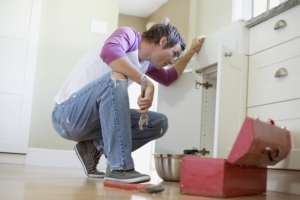Energy costs have been rising for some time, and it is unlikely that they will fall any time soon. For many homeowners, energy bills make up a large part of their living costs, so reducing these bills is top of their agenda. When you add in the increased awareness of the climate change crisis and the need to reduce our carbon emissions, reducing energy consumption becomes even more important. We can reduce our energy usage by making changes to the way we live and energy-saving improvements to our properties.
If you are hoping to reduce your household energy costs, and help the environment at the same time, here are six tips to keep in mind.
1. Unplug idle appliances
Many electrical appliances in the home have a standby mode, which means they are plugged in and using energy even when not turned on. To conserve energy, unplug appliances when they are not in use.
2. Choose energy-efficient appliances
Because of our increased awareness of the importance of reducing our energy usage, manufacturers of electrical appliances are now displaying energy efficiency ratings for their products. Your fridge freezer, for example, is on all the time and so consumes a lot of energy, so it is worth shopping around for the most efficient.
3. Insulate and/or draft-proof your home
Whether you live in a hot climate, a cold one, or somewhere in between, you should ensure that your property is well insulated and draft-proofed. Insulation in the walls, ceiling, and floors will prevent heat from escaping during the winter and prevent hot air from coming inside during the summer. In addition to that, roof insulation is one of the best investments for your home if you want to reduce repair and maintenance expenses over a long period and keep your house both cool and warm. The better your insulation, the less you will need to use your heating or air conditioning system. Draft-proofing windows, doors, and blocking off chimneys is also an effective way to reduce heat loss.
4. Upgrade your hot water system
Heating water for your home can be expensive, especially if you are relying on an old, unreliable, and inefficient system. New hot water system installation Perth by Pascoes Gas and Water could make a big difference not only to your bills and carbon footprint but also to your quality of life. You can also reduce your heating costs by lowering the thermostat by a few degrees.
5. Be smarter with your air conditioner
An air conditioner can be a great help on particularly hot and/or humid days, but it can be a big drain on your energy. To minimize its energy usage, try to turn it on before the home becomes too warm, and turn the temperature up by 1-2°C as this will save you 10-20% of your energy consumption. Alternatively, a ceiling fan is another way to cool your home, which is usually cheaper.
6. Switch to a renewable energy provider
If you are concerned about how your energy usage is impacting the planet, it is worth considering switching to renewable or ‘green’ energy providers. Green energy is generated not by burning fossil fuels (which produces carbon emissions) but from clean and renewable sources like the sun, water, wind, and biofuels. The price you pay for renewable energy will vary depending on the provider you choose.




